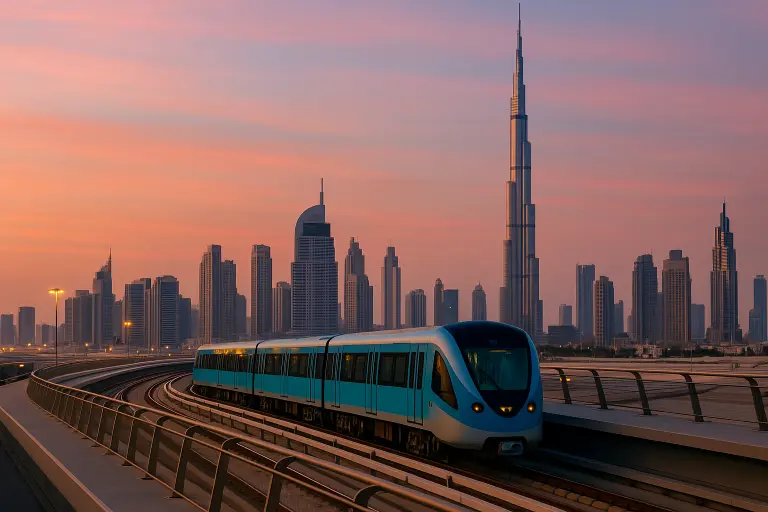Dubai real estate demand climbs as global talent shifts from US to UAE

Nov 24, 2025Source
Abdulla Lahej, Chairman of Amaal, said expatriate relocation remains one of the strongest drivers of current demand. With around 80% of expatriates in Dubai living in rental homes, many are now transitioning toward ownership as the city’s residency policies mature. “The influx of international professionals contributes substantially to market growth and diversity in demand segments,” he said. Lifestyle benefits, regulatory clarity and increasingly competitive employment opportunities are pushing more long-term residents to buy rather than rent.
Rental yields averaging 7.2% for apartments and steady capital appreciation are keeping the secondary market active. Developers have also accelerated off-plan supply to match the needs of first-time buyers and long-term residents entering the market due to visa reforms.
Saltini said the dynamics are widening at the top end as well. He pointed to $10 million-plus home sales reaching about $2.6 billion in the second quarter of 2025 alone. “At the same time, skilled professionals and families are powering a boom in affordable luxury apartments, townhouses and family villas,” he noted. But he warned that demand could outpace available supply in certain segments, with around 80% of the 300,000 new homes scheduled between 2025 and 2029 being apartments and only about 17% villas.
Sustainability of relocation-driven demand
Analysts agree the relocation wave is durable, though not immune to external shocks. Lahej said the trend remains sustainable in the medium term, underpinned by Dubai’s tax advantages, its central geographic position, and its strong regulatory environment. But he also acknowledged that global macroeconomic factors could influence the trajectory. Shifts in immigration rules in other major economies, geopolitical uncertainties, or rising living costs could alter the pace of relocations.
Saltini noted that credit ratings agencies expect a correction in real estate prices in 2026 as between 150,000 and 210,000 new units enter the market. He said population growth and pro-migration policies in the UAE could absorb much of the volume but added that salaries will need to keep pace with living costs to sustain demand among mobile professionals.
Competitive edge over Western markets
Lahej said the UAE’s policy framework remains a central differentiator versus Western markets. The absence of income tax, capital gains tax or annual property levies makes Dubai particularly attractive compared with the US, Canada, or the UK, where high taxes and tighter lending criteria can limit affordability.
He highlighted the impact of infrastructure on investment decisions, noting that major government plans across transport, roads and public services play a key role in shaping investor sentiment. “This combination of regulatory, financial, and tax advantages, along with world-class infrastructure, uniquely positions Dubai’s real estate market,” he said.
Saltini echoed the view but pointed out that financing can be a constraint for some non-residents due to lower loan-to-value ratios. Still, he said the overall value proposition continues to draw capital from markets facing rising taxes and political uncertainty.
US policy changes accelerate the shift
Recruitment experts believe the movement of talent could intensify following recent US policy decisions. The sharp rise in H-1B visa sponsorship fees to $100,000 per year is expected to reshape global employment flows and strengthen the Gulf’s appeal as a technology hub. Mahesh Shahdadpuri, founder and CEO of TASC Group, said the region’s infrastructure, tax advantages, and investment in artificial intelligence make it a compelling alternative for companies and workers alike.
Both companies and talent will migrate here,” he said. He added that major US technology firms already have a significant regional presence and are likely to expand further as they seek to tap into available talent pools and hedge against high domestic hiring costs.
Shahdadpuri pointed to Microsoft’s $1.5 billion investment in G42 in 2024 and the approval for Nvidia chip sales to the UAE as examples of how global technology strategy is turning toward the region. “These companies would like to attract and hire more here to develop services for their global operations,” he said.
Dubai’s property market is now being shaped by a convergence of forces: tightening immigration policies in traditional hubs, long-term residency stability in the UAE, expanding job opportunities and one of the strongest infrastructure pipelines in the world.
For buyers and investors across the income spectrum, Dubai is increasingly becoming the destination where global talent seeks permanence, business finds stability and families build long-term futures.
Get In Touch
Latest Blogs

Indian rupee at lifetime low: UAE dirham rates to help expat remitters this week

Best Areas to Stay in Dubai for a Family Holiday

Dubai Metro Map A Complete Guide to Navigating Dubai’s Metro System

